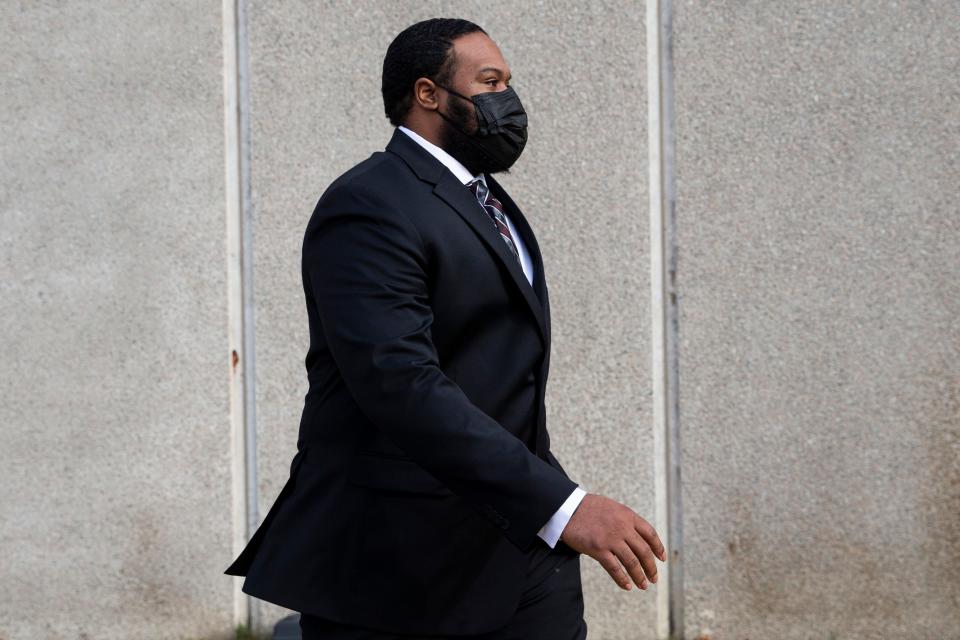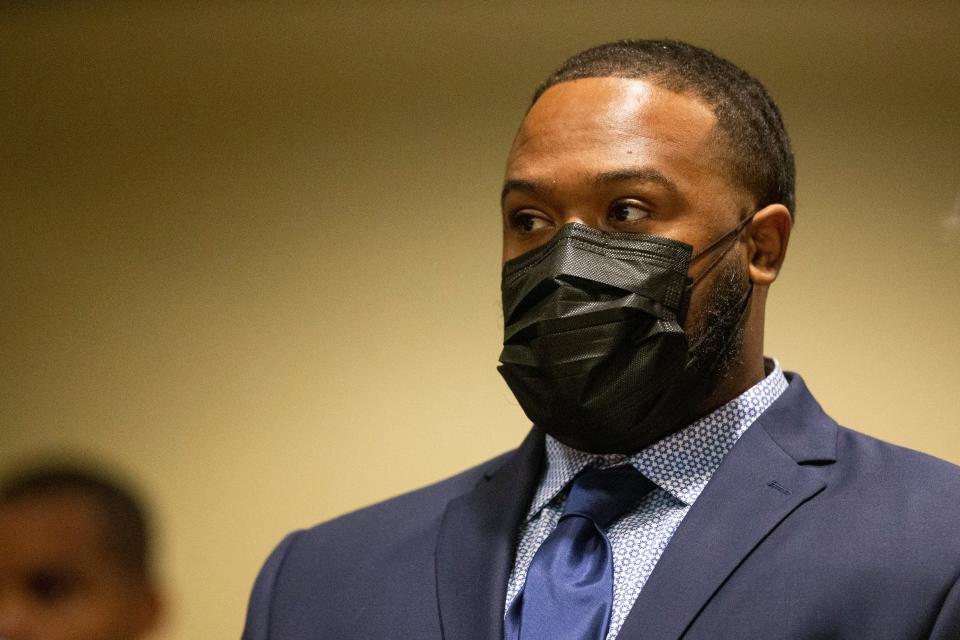Second ex-Memphis police officer seeks venue change, wider jury pool in Tyre Nichols federal case
A second now-former Memphis police officer charged with violating Tyre Nichols' civil rights has filed a motion to have the venue of the trial changed.
Demetrius Haley has joined Tadarrius Bean in calling for either a new venue or an expanded jury pool in the federal criminal case. Attorneys for both men are citing the large collection of media coverage that the case has received, arguing that it will prevent the defendants from receiving a fair trial.
Bean's attorney, John Keith Perry, filed the first motion to change the venue on Jan. 5. Haley's attorney, Stephen Leffler, filed his motion on Thursday.
In Haley's motion, Leffler suggests four ways of handling the perceived prejudice against his client. The first of those, he said, would be to move the trial to the Eastern Division of the Western District of Tennessee in Jackson, Tennessee. Leffler also suggested expanding the jury pool to the entire Western District, but excluding Shelby, Tipton, Lauderdale and Fayette counties from providing prospective jurors. He also suggested selecting a jury from the entire Western District, including those counties.

The fourth method, which Leffler said should be done regardless of the venue change, is sequestering the jury while the trial is underway.
In his argument for altering the venue of the trial, Leffler cites two cases from the 1960s, Estes v. Texas and Sheppard v. Maxwell, as cases that had "intrusions of the press," with the Estes case having media "allowed to sit within the bar of the court and to overrun it with television equipment."
Local and national media outlets have extensively covered the federal criminal case and been within the courtroom. However, in the federal proceedings thus far, media has not been allowed to sit anywhere aside from public seating and has not been permitted to bring electronics into the federal courtroom. Reporters have only been allowed a pen, pencil and a notepad.
More: How Tyre Nichols' parents stood strong in their publicized grief, focused on son's life
Leffler also claimed the footage from Nichols' beating in Jan. 2023 that has been played during broadcasts and attached to print news stories acted, essentially, as confessions.
"The publicity in this case has largely been ghastly videos played over and over of officers using force to attempt to handcuff and take into custody Tyre Nichols," Leffler wrote in the filing. "The videos act as a type of confession similar to Rideau v. Louisiana, where the defendant's broadcast confession 'was likely imprinted indelibly in the mind of anyone who watched it.'"
The motion also argued that the trial, which is slated to begin May 6, is scheduled too soon after Nichols' death and that media coverage has not tapered off. Leffler argued that the consistent media coverage is unfair to his client in a trial setting.
"The trial of this case is scheduled for a date just over a year removed from the incident at issue," he wrote. "The press coverage of this case has not had time to taper off and is exacerbated by coverage occurring with every court appearance of the case. Those court appearances can also be multiplied by at least two with court appearances in one federal criminal trial and one state criminal trial. The impact can likely be multiplied by four when the two federal civil cases are considered."
Leffler, in his motion, also attached numerous stories written by The Commercial Appeal, The Daily Memphian, The Associated Press and more, alongside references to television packages by each of Memphis' local stations and multiple national stations. In citing the community impact that the stories had, the filing references comments on social media, though it is unclear if the comments were made by residents of West Tennessee who would be potential jurors.
Comments on social media and news coverage were recently mentioned in Cleotha Abston-Henderson's attempt to have his state rape case tried with jurors from outside Shelby County. The judge in that case denied the motion, saying he believed there were jurors who could hand down an unbiased opinion in that case and that the comments could have been from people outside the jury pool.
Federal prosecutors oppose Bean's motion for venue change
Federal prosecutors, the same day Haley's motion for a change in venue was filed, submitted a response in opposition to Bean's request for the venue to be changed.
In their opposition, prosecutors from the U.S. Department of Justice said Bean did not meet the "high bar" required for a venue change.

"As the Supreme Court has recognized, 'prominence does not necessarily produce prejudice, and juror impartiality, we have reiterated, does not require ignorance,'" the DOJ wrote in its filing. "Rather, to establish 'the extreme case' in which presumptive prejudice requires a change of venue, a defendant must clear the 'high bar' of demonstrating local prejudice so severe and widespread to justify a presumption that 'impartial individuals could not be empaneled.'"
The DOJ, in addition to arguing that Bean did not meet that burden, said that asking for a jury pool beyond Shelby County is moot because "the venire already draws from the entire Western Division of the Western District of Tennessee."
More: 'Anxiety, frustration and fear': Has Memphis healed a year after Tyre Nichols' death?
In direct opposition to arguments made in Haley's motion, the DOJ argued that the nearly year-and-a-half time span between Nichols' beating and the trial was sufficient for media coverage to slow down, citing the Sixth Circuit Court recognizing "that the natural dimming of media attention that occurs in a year and even less militates against a finding of presumptive prejudice."
Federal prosecutors also said that both hard news and opinion journalism do not constitute prejudice in cases, including high-profile ones.
"In high-profile cases such as the present matter, 'scarcely any of those best qualified to serve as jurors will have formed some impression or opinion as to the merits of the case.' The 'relevant question is not whether the community remembered the case,' or even formed some negative opinion of the defendants, but rather 'whether the jurors... had such fixed opinions that they could not judge impartially.'"
Lucas Finton is a criminal justice reporter with The Commercial Appeal. He can be reached at Lucas.Finton@commercialappeal.com, or (901)208-3922, and followed on X, formerly known as Twitter, @LucasFinton.
This article originally appeared on Memphis Commercial Appeal: Ex-MPD officer Haley wants venue change for Tyre Nichols federal case

